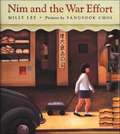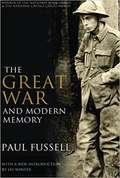- Table View
- List View
Preventing War: The United Nations and Macedonia
by Abiodun WilliamsDescribes the role the UN played in Macedonia.
Valiant in Fight: A Book of Remembrance
by Laverne E. TiftIn the early months of World War II, many ships and stations of our Navy had no chaplain officially assigned. Chiefly, through the efforts of a unique Christian organization called "The Navigators", when the need for a Christian preacher was obvious, some "Navigator" trained man would step forward and fill the bill. These men and their associates were dedicated, fearless, top-notch fighting men, who loved and trusted the Lord Jesus Christ. Such a one was Machinist Mate first class, La Verne E. Tift aboard the heavy cruiser USS Minneapolis, operating with the Pacific Fleet out of Pearl Harbor. He was the "spark-plug" and acting teacher of our Bible study and prayer groups. Since leaving the Navy in 1945 he has become a Minister of the Gospel, serving various churches in California. He and his wife Grace reside in Fresno, California.
Florian: The Emperor's Stallion
by Felix SaltenA Lipizzan stallion's extraordinary life, as pampered favorite of Austrian Emperor Franz Joseph, until the onset of World War One reduces his circumstances to that of a common cab horse. No one can resist Florian's charm. A pure Lipizzan stallion raised and trained to perform in the elite Spanish Riding School, his exceptional talent has no trouble getting the attention of everyone who sees him. His two friends, Anton, a loyal and loving stable worker, and Bosco, an energetic and comical fox terrier, accompany him throughout his life. Together, the trio travel together through a changing and increasingly harsh world in the years from 1901 through World War I, and after. Felix Salten's story of a beautiful Lipizzan horse and his extraordinary life is vividly depicted in this book, which was written shortly before his acclaimed book, Bambi.
A Review of the U.S. Navy Cyber Defense Capabilities: Abbreviated Version of a Classified Report
by Committee for a Review of U.S. Navy Cyber Defense CapabilitiesIn order to conduct operations successfully and defend its capabilities against all warfighting domains, many have warned the Department of Defense (DoD) of the severity of the cyber threat and called for greater attention to defending against potential cyber attacks. For several years, many within and outside DoD have called for even greater attention to addressing threats to cyberspace.
Nim and the War Effort
by Milly Lee Yangsook ChoiIn San Francisco during World War II, Nim, a Chinese-American, is determined to win the newspaper drive -- although it is the last day. She realizes her closest rival has cheated. Undaunted, she leaves Chinatown and heads to Nob Hill after school, determined to find more paper.<P> An ALA Notable Book. An NCSS-CBC Notable Children's Trade Book in the Field of Social Studies.<P>About the Author: Milly Lee grew up in San Francisco’s Chinatown. She is a retired school librarian and lives in Sonoma County, California.<P>About the Illustrator: Yangsook Choi grew up in Korea and holds an M.F.A. from the School of Visual Arts in New York City, where she now lives. [powells.com]
The Decline of Bismarck’s European Order: Franco-Russian Relations, 1875-1890
by George F. KennanThe Franco-Russian alliance evolved more and more steadily into a long-term military alliance, an instrument of foreign policy that Kennan deplored as too rigid and unresponsive to a changing international situation.
The Great War and Modern Memory
by Paul FussellFussell writes: This book is about the British experience on the Western Front from 1914 to 1918 and some of the literary means by which it has been remembered, conventionalized, and mythologized. It is also about the literary dimensions of the trench experience itself. Indeed, if the book had a subtitle, it would be something like "An Inquiry into the Curious Literariness of Real Life." <P><P> Winner of the National Book Award
Downfall: The End of the Imperial Japanese Empire
by Richard B. FrankEnd of World War II in the East.
The Shield of Achilles: War, Peace, and the Course of History
by Philip BobbittHistory of war and international relations with commentary and theses.
Barracuda: Final Bearing
by Michael DimercurioIn DiMercurio's most harrowing thriller to date, Greater Manchuria, a new independent nation, threatens its Japanese neighbors with nuclear devastation. But Japan initiates a preemptive strike in the form of a devastating new weapon that will bring the world to the edge of all-out war. Now Admiral Michael Pacino must return to active service to face the deadliest threat the world has ever seen!
Ice Station Zebra
by Alistair MacLeanThe atomic submarine Dolphin has impossible orders: to sail beneath the ice-floes of the Arctic Ocean to locate and rescue the men of weather-station Zebra, gutted by fire and drifting with the ice-pack somewhere north of the Arctic Circle. But the orders do not say what the Dolphin will find if she succeeds -- that the fire at Ice Station Zebra was sabotage, and that one of the survivors is a killer!
Secrets: A Memoir of Vietnam and the Pentagon Papers
by Daniel EllsbergHow the U.S. mismanaged Vietnam.
Wolfpack Hunting MiGs over Vietnam
by Jerry ScuttsAir-to-air combat was limited in Vietnam compared to the Korean or Second World wars. The author does a credible job of examining the air combat that did take place, examining the tactics, equipment, and the personnel of both sides.
Great Battles of World War I: In the Air
by Frank C. PlattA unique anthology of stories compiled by Platt of aerial combat witnessed during World War I. It records the personal experiences of these first air-borne fighters. Men like Eddie Rickenbacker, Billy Mitchell, and William A. Bishop describes the perilous missions that made them legends in their own time. Here are the death-defying encounters; the one-man machines; the flaming, mortal combat in which each fighter singled out his esteemed adversary. Here are the great air battles of World War I and the daring aces who began a new era of warfare -- began it with a spirit of chivalry and gallantry that now belongs to a past age.
From October to Brest-Litovsk
by Leon TrotskyTrotsky's account of the revolutionary events in Russia in 1905. Trotsky's ideas form the basis of Trotskyism, a term coined as early as 1905 by his opponents in order to separate it from Marxism. Trotsky's ideas remain a major school of Marxist thought that is opposed to the theories of Stalinism.
First Blood: The Story of Fort Sumter
by W. A. SwanbergA gripping account of the American Civil War, including eyewitness testimony and profiles of key personalities.
Guerrilla Warfare
by Ernesto Che GuevaraIn this, the most famous book produced by the Cuban Revolution, a charismatic guerrilla leader presents his manifesto on asymmetrical warfare. The Argentine-born Marxist revolutionary Ernesto "Che" Guevara (1928-1967) establishes the principles of waging a popular rebellion, outlining his theories on insurrection and discussing their application in Cuba and elsewhere. Guevara's essays remain remarkably relevant to the twenty-first century, and his example of dedication, commitment, and self-sacrifice continues to inspire freedom fighters around the world.
Torn Country: An Oral History of the Israeli War of Independence
by Lynne Reid Banks"Torn Country" is not so much a history of the Arab-Israeli war but rather a series of recollections and assessments of it by participants. Banks collected interviews and arranged them, to give as clear a picture of the events that took place as possible through the memories and in the words of a wide variety of people who remember them -- sometimes as if they happened yesterday, more often with perspective: events that shaped Jewish history.
Darby's Rangers: We Led The Way
by William O. Darby William H. BaumerHistory of Darby's Rangers from North Africa to Italy.
H.M.S. Ulysses
by Alistair MacLeanThe order flashed from the command ships SCATTER AND PROCEED INDEPENDENTLY Ahead of the convoy, lying in wait in the Arctic storm, was a German cruiser and battle squadron. The Allied ships wheeled and zig-zagged away from each other. All except the H.M.S. Ulysses. She did not change course. She was sheeted in ice and her bow leaped clear of the water as her great engines thrust her forward. The upper decks were a twisted, unbelievable shambles of broken steel. A Stuka had crashed into the fo'c'sle. Smoke plumed from great holes near the water line. Aft, a flag twenty feet in length streamed below the yardarm. It was red and blue and whiter than the Arctic snow. Streaming straight for the enemy, the H.M.S. Ulysses had broken out her battle ensign.
Soldiers In Hiding
by Richard WileyThis remarkable novel is not only an imaginative work of the very highest order but a cross-cultural tour de force of extraordinary daring and vision. It begins in Tokyo in 1941, when Teddy Maki and Jimmy Yamamoto, two young Japanese-American jazz musicians, are stranded in Japan after the bombing of Pearl Harbor, drafted into the Japanese army and sent to the Philippines, the scene of bloody conflict with guerrillas and American troops. Rather than act as true soldiers, the two young men attempt to disengage themselves from the savagery of a war in which they are unable to choose sides. But such innocence is impossible to maintain. Thirty years later, Teddy Maki, by then a star of Japanese television, is still haunted by Jimmy's death and his own failure to disobey the order of his commanding officer to shoot an American prisoner. The guilt that poisons his relationship with his wife and son and with the country in which he has chosen to live as a perpetual outsider speaks to the moral issues raised by all wars -- from Auschwitz to My Lai.
The Green Gauntlet (A Horseman Riding By #3)
by R. F. DelderfieldIn "The Green Gauntlet", we return to the seven families whose lives are rooted in the green acres of the great farming valley of Shallowford. The time is just at the outbreak of the Second World War, when the valiant pilots of the RAF are locked in combat with the Luftwaffe in the skies above Devon and England stands imperiled as never before by the dark shadow of Nazi invasion. The hero again is Paul Craddock -- older, wiser, but still fiercely dedicated to his land, to his children and grandchildren, to his tenants and to the vanishing way of life they represent.
Swift Arrow: An Historical Novel Based on the Sioux Indian Uprising
by Alice PrendergastHere is a dramatic narrative with its setting in southern Minnesota and based upon the period before and during the Indian resurrection. Written in a stirring and compelling manner by an author who spent several years in exhaustive research of all historical facts involved in this period of Minnesota history, she has combined a fictional story against a background of actuality. In southern Minnesota and in Iowa, the name of Little Crow still spells misery and desolation. Five Little Crows ruled the great tribe of Sioux Indians. A Little Crow made the Treaty of Traverse des Sioux. Then a fifth little Crow struck the whites at Fort Ridgely in 1858. Joe Walker, who is a real character in Swift Arrow, was a captain in the Minnesota Rangers and did yeoman service until General Sibley's troops arrived to check the Indians. Pierre Leduc, the hero of Swift Arrow, fights in the war. His wife had been one of the five captives captured by the Indians; their love story is an epic of tenderness and devotion. The reader will love Betsy as Pierre did, and admire her greatness of soul. Joe and Katie Walker are still remembered by many farmers of the Minnesota Valley whose relatives were slain in the massacre.


